Playing chicken with disaster: why we need to wean ourselves off intensive poultry

By Amy Oboussier
Soya has become the symbol for the most gratuitous aspects of modern meat production, and for good reason. In recent decades, soy has risen to prominence as the primary protein source in pig and poultry feed, triggering growing concerns over its overproduction and its role in driving deforestation, particularly in biodiverse regions like the Amazon. This issue is particularly pressing for the UK, which annually imports a staggering 3 million tonnes of soy for animal feed, with the majority originating from South America, including the Amazon and other ecologically rich areas. The relentless expansion of soy production, alongside related industries such as timber extraction and cattle ranching, continues to jeopardize these regions. Globally, the land-use footprint of soy production stands at 131 million hectares, equivalent to about one-third of the EU's size.
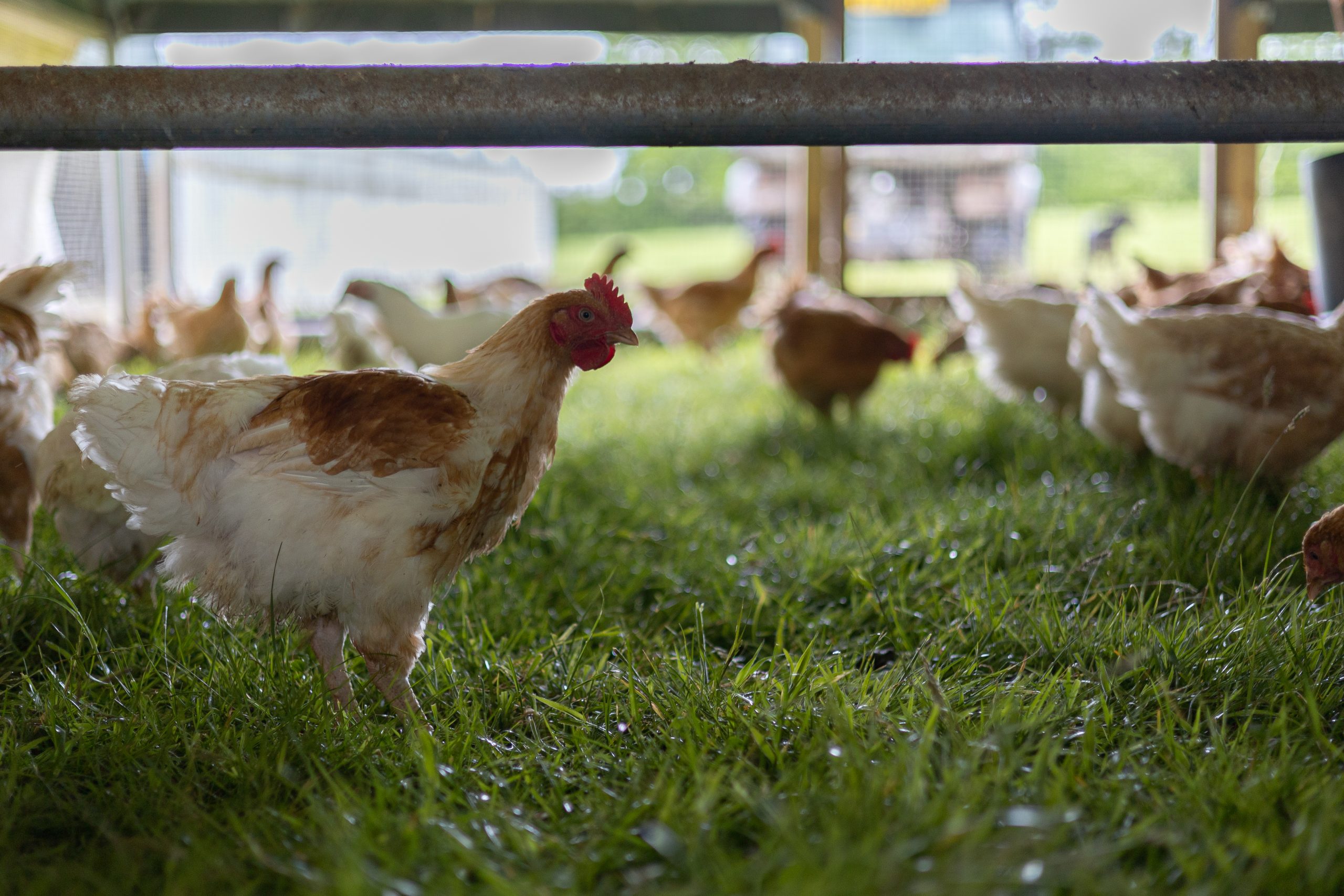
A damning 2022 report into soy-driven deforestation in the Brazilian Cerrado, a highly threatened biome, uncovered unsettling truths. It revealed that "legal deforestation is widespread, ingrained, and endemic in our supply chains." Notably, Cargill, the UK's largest soy importer and a key player in the UK chicken industry, directly imported soy linked to deforestation and supplied it to major corporations including Tesco, Asda, Lidl, Nando's, and McDonald's. Shockingly, this deforestation was deemed legal under Brazilian legislation, as it occurred in the Cerrado biome, which lacks protective measures.
A staggering 90% of the UK's soy imports are for animal feed, with the industrial pig and poultry sector being the primary consumers. This heavy reliance on soy imports for pig and poultry production not only raises sustainability concerns related to land use abroad but also poses increasing risks to UK food security and farming livelihoods.
Recent events, including Brexit, the COVID-19 pandemic, the Ukraine conflict, and extreme weather linked to global warming, have underscored the perils of depending so heavily on global food supply chains to meet our dietary needs. The global animal feed supply chain exemplifies these vulnerabilities. Between 2016 and 2022, international soy prices jumped from £300/tonne up to £500/tonne - a rollercoaster of price volatility that places UK livestock farmers in a precarious position.
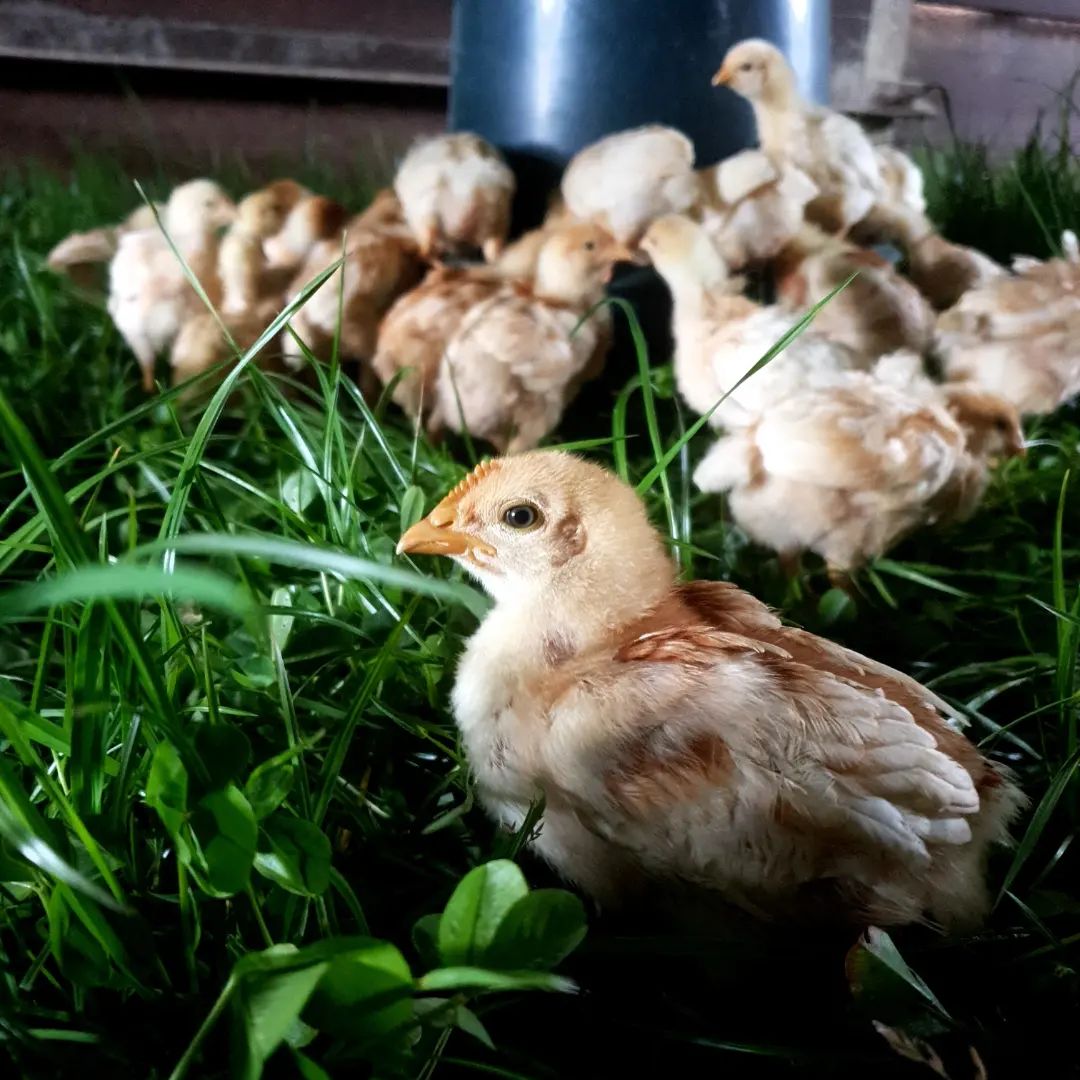
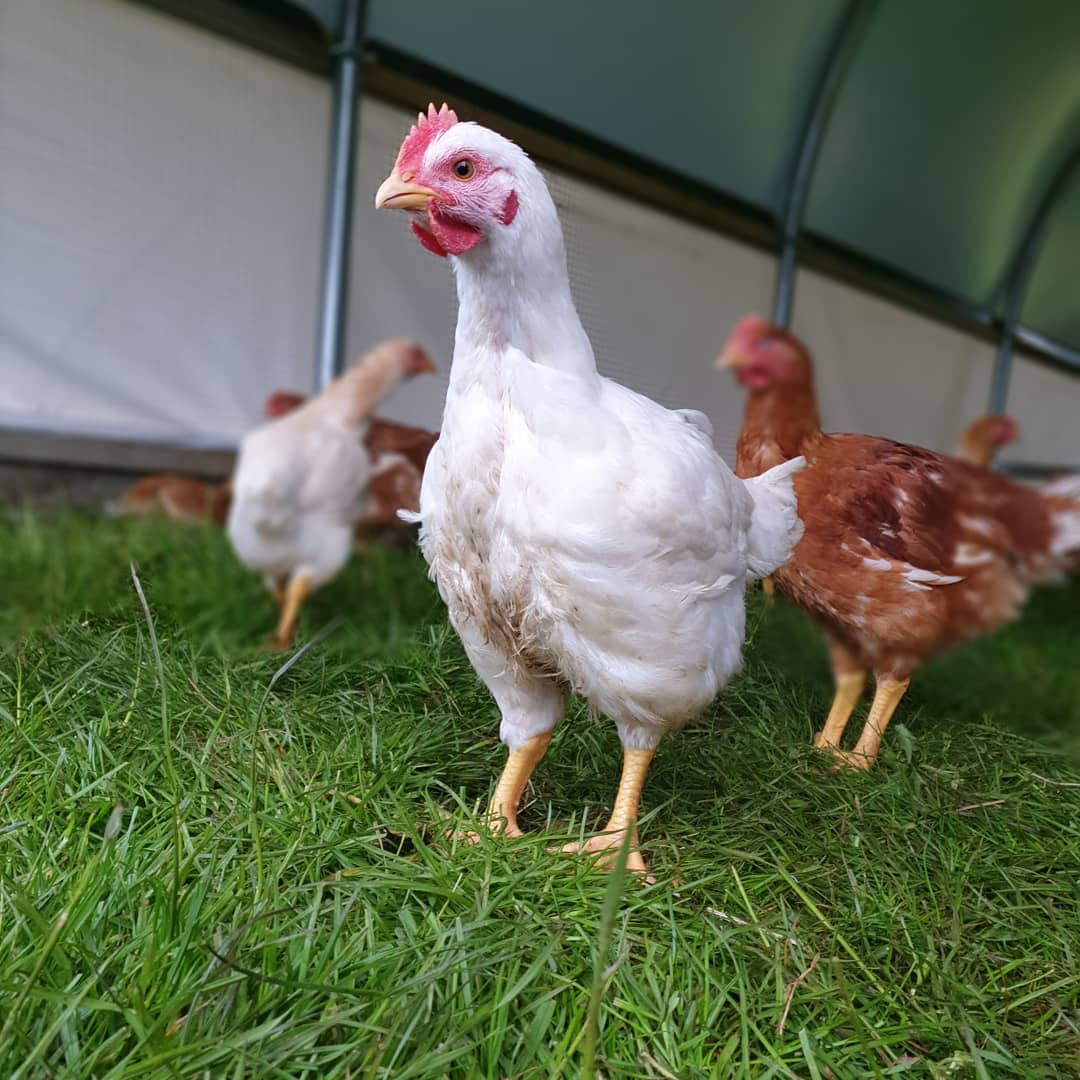
In the UK, the poultry sector nowadays looks less like a collection of farms than a handful of corporate owned flesh factories. The companies who dominate the trade – names like CCL Holdings, 2 Sisters Food Group and Cargill – call it vertical integration: They provide farmers with feed and chicks, and the farmers are then compensated on square meters of production per week. Entry costs for farmers are so high, and margins so tight, that only those prepared to work at a significant scale can make a viable business.
Inevitably, this model drives farmers to ever-increasing intensification – huge sheds housing as many as 40,000 birds may be housed in a single unit. This industrial-scale approach often means chickens are kept in cramped conditions, adversely affecting their quality of life and necessitating the use of antibiotics to prevent disease transmission.
Chicken has been off the menu here at Farm Wilder, but we are delighted to now be working with Redwoods Farm in Devon who are supplying us with ethically raised chicken fed a 100% soy-free diet, with the majority of feed ingredients sourced within 10 miles of the farm.
They rear their chickens on a pasture system to encourage their natural foraging behaviour. The birds are moved daily, following cattle out on the pasture. They fertilise the soil with their droppings and help to minimise fly and worm burdens on the cattle by scratching around in the dung pats, and eating insects and larvae. This mimics a natural grassland system, where large flocks of birds follow the herds of grazing ruminants.
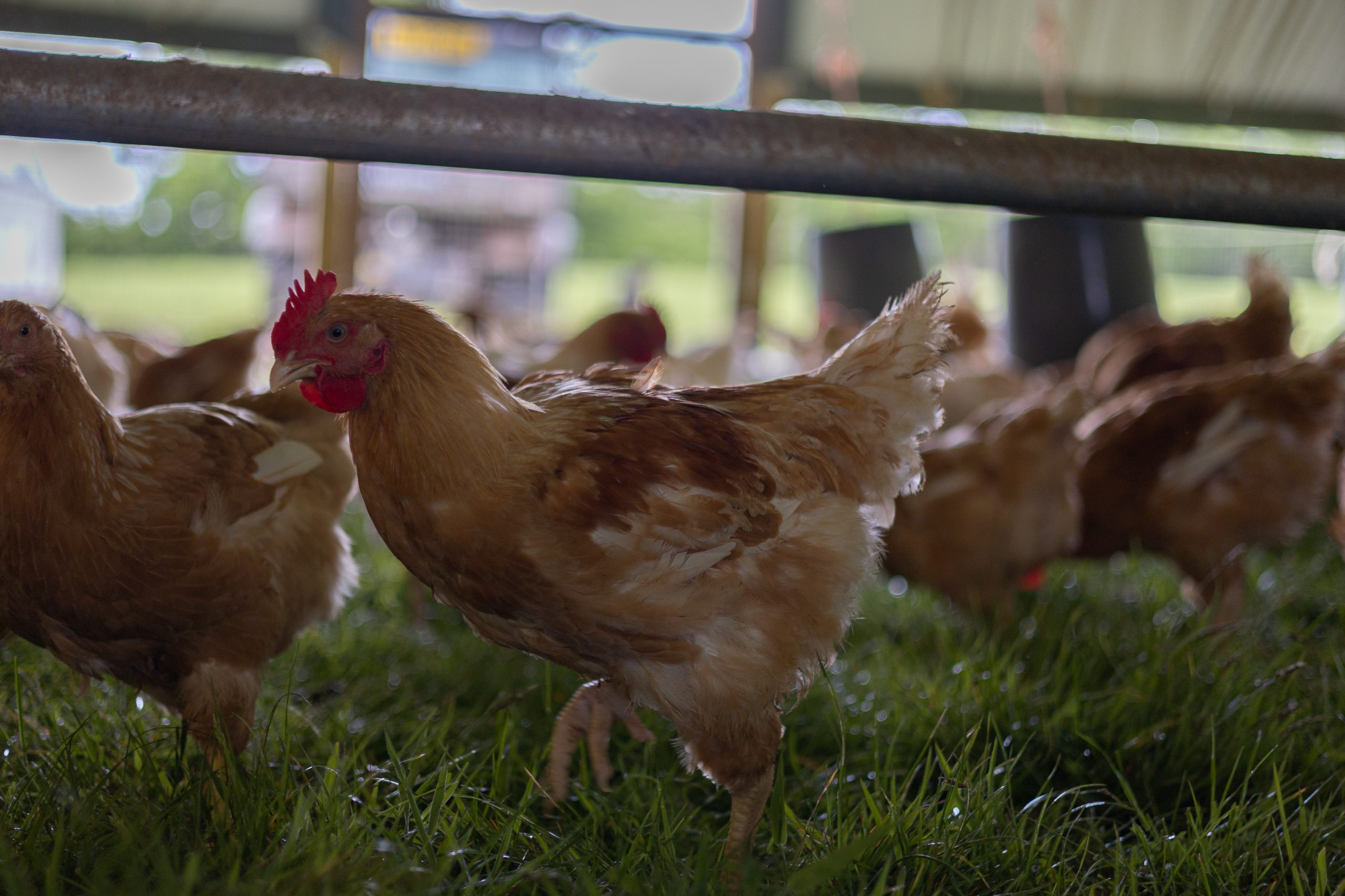
“We wanted to grow pasture-raised chicken and thought if we're producing such an environmentally conscious product (in terms of eliminating our artificial fertilise use, improving our soil health and biodiversity), why wouldn't we think about the feed they're eating too’, says Amy Chapple at Redwoods Farm. “So for us it's just as much about being local and regeneratively produced as soy-free itself.”
Addressing the challenges of soy feed in livestock farming requires a comprehensive reassessment of the livestock industry's reliance on soy as the primary protein in animal feed and a concerted effort to promote sustainable alternatives. It would be the worst type of hypocrisy to promote the conservation of wildlife within the confines of our British borders through regenerative farming practices, only to outsource our demands for cheap, environmentally damaging food to the impossibly diverse and fragile ecosystems of equatorial countries.
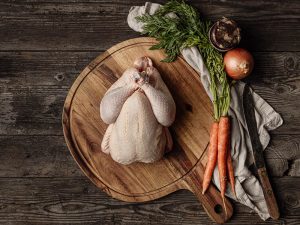
Wilder Whole Chicken
£19.45
Experience the rich, succulent flavor of our Whole Chicken, ethically raised and pasture-fed. Perfect for roasting, grilling, or any culinary creation.
Out of stock


